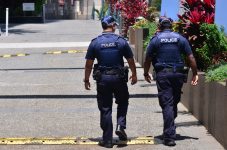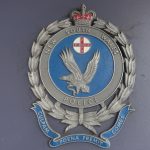Do Police Have to Meet Arrest Quotas?

If you’ve ever worked in retail or sales, you’ve probably been required to meet sales targets or quotas.
Sales targets are often used in the retail industry to assess whether an individual is performing up to scratch, and to encourage employees to maximise business profits.
Criminal law firms
Many criminal law firms subject their lawyers to stringent billing targets and quotas, pressuring them to generate a minimum amount of money every month, regardless of the best interests of the client.
One of our Senior Lawyers, who was previously employed by such a firm, has written about how this creates a cut-throat environment, where he found that:
- lawyers from the same firm ‘steal’ each other’s clients,
- lawyers do not consult one another or work as a team to devise and implement defence strategies, even where other lawyers in the firm have more expertise in the case-type,
- there is enormous pressure to overbill clients and overbook cases, and
- securing the best outcome for clients is subsidiary to billing them as much as possible.
A member of our Facebook family recently commented about how criminal lawyers waste time and money by drawing cases out until the day of a defended hearing and then advising clients to plead guilty. Regrettably, this practice is known to occur amongst some unscrupulous criminal lawyers.
Police forces
It seems that in an ever-increasing competitive environment, more and more organisations are adopting targets and quotas, ostensibly as a means of assessing individual performance.
In recent times, police forces around the country have been accused of imposing quotas upon officers which require them to meet targets for arrests, breath testing and drug offences.
If accurate, such allegations could undermine the integrity of the police force and foster a culture of unethical behaviour by officers who feel the pressure of meeting and exceeding targets.
Accusations of Quotas in the Police Force
Suggestions of performance targets within the police force are not uncommon – over the past few years, police in Western Australia, South Australia and Queensland have been accused of ‘putting numbers before results’ when it comes to making arrests, issuing fines and conducting breath tests.
Back in 2011, South Australian police found themselves in hot water after an internal email was leaked showing that officers were expected to meet ‘benchmark targets’ whilst on the job.
The email stated that each officer at Adelaide’s Holden Hill police station was expected to make five arrests, nine traffic contacts (including on-the-spot fines using mobile breath tests) and issue one drug-related fine or diversion. Officers were also required to arrest or report two drink-drivers.
The email went on to say that officers ‘who cannot or choose not to reach these benchmarks’ would need to provide an explanation to their sergeant and the station’s senior sergeant.
Upon publication, the email was retracted, with police saying that it was a ‘mistake’ by an officer who was ‘relieving in a higher position.’
Despite these assertions, the SA police force has conceded that benchmarks exist for a range of traffic offences and ‘road safety policing’. There has been considerable confusion about these benchmarks, and government ministers have called upon SA police to clarify what quotas they are required to meet.
Similarly in Queensland, officers are reportedly under pressure to meet quotas for traffic fines, RBTs and street checks. Groups within the police force have even been subjected to ‘scorecards’ which assess performance.
While the police union has been quick to condemn the practice, it has been defended by Police Commissioner Ian Stewart, who says that scorecards and benchmarks allow police to assess whether they are ‘doing their job’ of preventing crime and making the community safer.
The Problem With Quotas
Despite Mr Stewart’s assertions, several groups have condemned these practices, pointing out that quotas have led to people being punished for trivial offences such as speeding by one kilometre over the speed limit, rather than serious offences which actually pose a threat to the community.
Many also argue that the quotas foster unethical practices amongst police officers, such as illegal searches and intimidation in a bid to maximise arrest rates and appease superiors in the force.
The impact of these controversial targets has arguably already been felt by motorcycle groups who have been subjected to arrest and detention simply for having a drink with family members at the local pub.
Others argue that partygoers are being increasingly targeted for minor drug offences at large festivals after a NSW Police arrested a whopping 153 people a the Field Day festival earlier this year.
Some also suggest that the imposition of benchmarks and quotas on police officers will lead to an increase in racial and economic profiling by police who will increasingly pick on ‘easy targets.’
A Blast From the Past
History has a strange tendency to repeat itself.
Police ‘kill sheets’ were an initiative of the controversial Bjelke-Peterson government in the 1970’s and 80’s in Queensland.
As the longest-serving Premier of Queensland, Bjelke-Peterson earned a reputation for his hardline approach to crime, his conservative attitudes and intrusion on civil liberties, which led to Queensland being labelled a ‘police state.’
The ‘kill sheets’ implemented by the Bjelke-Peterson government required police to maintain strict arrest quotas, and to ‘name and shame’ officers who did not fulfil those requirements – some of whom maintained a high level of integrity in the face of great pressure.
The persecution of officers who acted fairly and spoke out against quotas, and the promotion of many who did the opposite led to widespread criticism of Bjelke-Peterson’s directive, and was one of many contributing factors to his ultimate demise.
Allegations of police corruption during the Bjelke-Peterson prompted a media investigation, which in-turn initiated the infamous Fitzgerald inquiry into police misconduct. Of course, that inquiry exposed widespread bribery and other unethical and corrupt conduct within the police force.
In the wake of these findings and his controversial measures, Bjelke-Peterson was faced with opposition from members of his own party, and he was eventually forced to stand down. He was later charged with perjury in relation to evidence that he gave at the Fitzgerald Inquiry, but was acquitted by a jury.
Despite this, police forces around the country seem inclined to adopt the Bjelke-Peterson government’s flawed approach of imposing quotas and benchmarks on police officers.
It is suggested that such quotas will only serve to further promote unethical and corrupt conduct amongst police officers and police forces generally.
Receive all of our articles weekly
Author






